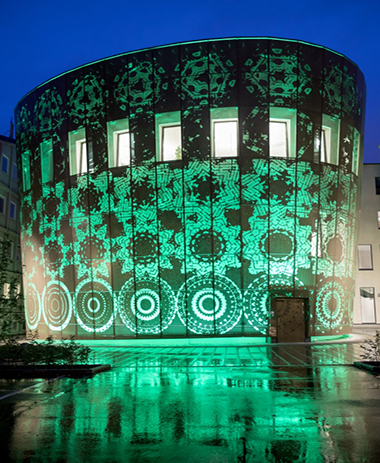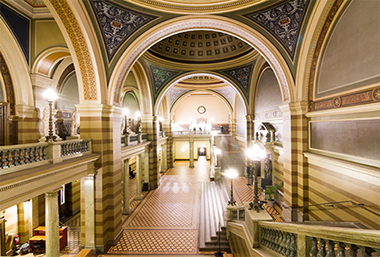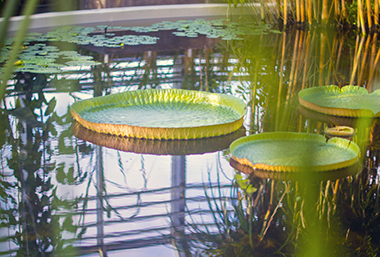300 years of weather observations, heavenly voices and the fear of frailty

This year marks 300 years since Anders Celsius began making the weather observations that are still carried out at the Department of Earth Sciences today. Learn more about how weather analysis and climate research have developed over the centuries at a two-part lecture in the University Main Building, room X.
In the evening, the Allmänna sången choir will play a concert in the entrance hall of the University Building.
Approaches to disabilities and the fear of frailty have varied between different cultures and different times. The lecture “From idiot to fellow human” discusses the treatment of intellectual disability from a historical perspective. Attitudes towards disabilities have undergone dramatic changes from the Middle Ages, the Age of Enlightenment and the Industrial Age to modern society. The lecture will be held in the Humanities Theatre.
Late summer flowers and possible fishponds in the Linnaeus Garden
Visit the archaeological excavations of Olof Rudbeck’s and Carl Linnaeus’ outbuildings and courtyard in the Linnaeus Garden; a unique opportunity to study the artefacts left behind by two famous scientists. Layer upon layer of cultural history with traces of buildings, horticultural ventures... and maybe even a fishpond.
Enjoy late summer flowers in the garden, pop into the Linnaeus family home and take a tour of the garden and the orangery.
Treasure hunt and Egyptian dance at Carolina Rediviva
The Carolina Rediviva exhibition hall, shop and café will be open and there is a craft corner in the café. Take part in a treasure hunt at the exhibition hall, take a guided tour of the Book Hall or listen to a lecture on Egyptian hieroglyphs in the Periodical Reading Room.
Enjoy the music of Egypt in Reading Room A and dance to Fadi Kutaini as he plays the oud and sings.
Vice-Chancellor Anders Hagfeldt will award the Disa Prize to this year’s winner during a ceremony in the entrance hall.
Frog song and Japanese archery in the Botanical Garden
The Botanical Garden will host a wealth of activities during Culture Night, including a ‘Japanese culture night’. Here you can experience Japanese culture, draw manga, try your hand at origami, have a go at Japanese archery with Uppsala Kyudoklubb and martial arts with Okinawa Karate.
You can also listen to frog song in the Tropical Greenhouse or enjoy chamber music from a wind quintet from the Royal Academic Orchestra in the Linnaeus Room. Catch the Uppsala Chronicle Play – ‘Linnaeus in His Garden’, take a guided tour, attend a workshop as part of the Flying Seeds exhibition, or watch the Waldorf School’s fire show.
Medical history performance, cultural ecosystems and fragile democracy
The Museum of Medical History’s exhibitions will be open, and the museum will offer a full programme including a performance by the artist Johanna Willenfelt, a lecture on artistic works at the former Ulleråker hospital, and a guided tour.
As part of Uppsala Municipality’s bid to become European Capital of Culture 2029, the University and the municipality are collaborating on a survey of Uppsala’s cultural ecosystems. Uppsala University also has a leading role in the EU’s new multi-billion European investment in culture and creativity – EIT Culture & Creativity. Professor Christer Gustafsson from the Department of Art History will be at the ideas hub at Forumtorget, where he will present the results of the survey and discuss how we can continue to illustrate culture’s diverse relationships and its importance in different contexts.
At Fyriskällan, Professor of political science Sten Widmalm will hold a lecture about the new book, ‘Skör demokrati - det öppna samhällets motkrafter i svensk offentlig debatt, kultur och forskning’ (Fragile democracy – the forces countering the open society in Swedish public debate, culture and research) (editors: Sten Widmalm and Thomas Persson).